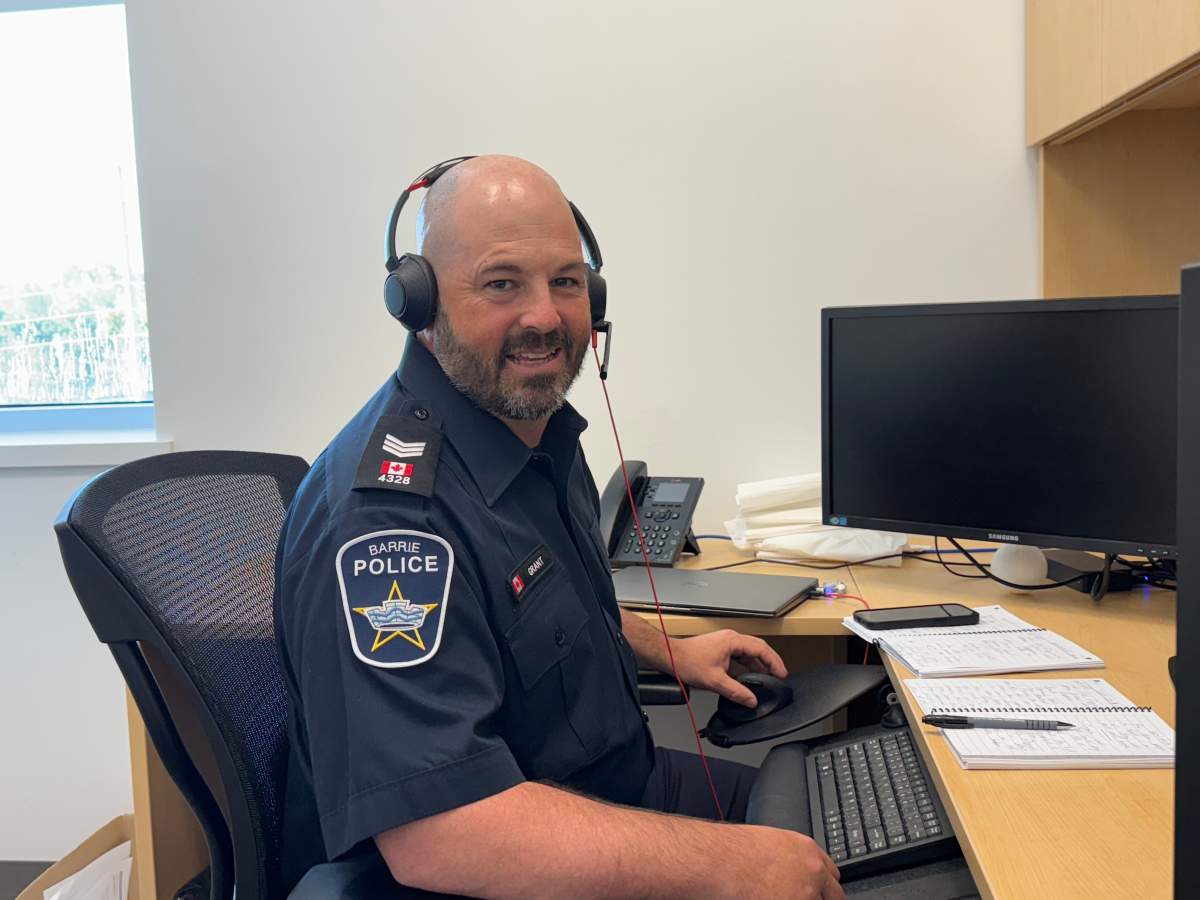Barrie, Ont., police are among the first in Canada to pilot a virtual call response program for non-emergency calls. They hope this will save time and money while giving victims more privacy.

Barrie police are believed to be the third police force in the world and second in Canada to try this type of policing.
The pilot, which was launched at the end of September and will run until the end of October, allows certain non-emergency calls for service to be addressed through a secure video chat with a police officer located at the Barrie police headquarters.
In order for a call to be answered virtually, police say there is no immediate threat to people or property, and the caller needs to have access to a smartphone.
Police say this new model could greatly reduce the time it takes for an officer to respond to a call, save money on resources and free up officers to respond to more emergent matters.
“Virtually I can talk to you right away, where if not, you may have to spend a couple of hours waiting for a cruiser to come by,” Sgt. Bill Grant says.
Grant says the time-saving aspect is critical to helping victims when a crime has been committed.
“They’re feeling stressed or feeling emotional, and a police officer comes, they suddenly feel relief. Well, nowadays with this virtual call response, I can give them relief right away, whereas if you have to wait six hours or 12 hours, that’s a lot of stir-up time, a lot of stress time for our victims and complainants.”
Grant says the other aspect of this new program is privacy, allowing people to speak with an officer without having a police car in their driveway for neighbours to see.
Grant notes this can also make it easier for victims of assault to report to police, allowing them to find a safe place and privacy within an office or their home.

Get breaking National news
“I do think that some victims really enjoy not having a police car come to their house, not having to come in the police station and walk through the hallway. It’s just a private conversation between me and them,” he says.
London, Ont., believed to be the first community in Canada to try this type of response, is currently finishing up a two-year pilot using the software to respond specifically to calls regarding domestic violence.
In a statement, the London police force said the victim choice reporting unit has changed how police handle non-emergency intimate partner violence cases by giving victims the option of a triaged physical response or virtual response using 911eye technology.
“First piloted in 2022 with the assistance of provincial grant funding, the VCR has significantly enhanced the support available to victims, allowing them to choose the response that best suits their needs and circumstances,” the statement reads. “The VCP empowers victims of gender-based violence by simplifying communication with police and reporting.”
London police say this initiative builds on the work from Kent Police’s Rapid Video Response (RVR) in the United Kingdom. To their knowledge, London police are the second police service in the world to leverage this type of alternative response option.
A recent survey on the London program showed that 95 per cent of individuals who received a virtual response were satisfied or extremely satisfied with their engagement with VCR officers, and 93 per cent were satisfied with 911eye reporting technology.
With the grant period ending, the London Police Service aims to broaden the VCR program to further extend its benefits to victims, ensuring that a broader range of individuals can access the support and options they prefer.
Currently, in Barrie, Grant is the only officer working on the program, which runs Monday to Friday during his regular working hours, but he hopes that following a review that a more permanent program will be put in place, with more staff to respond to calls.
“I think really it’s going to carry us in the future. I’m on the board right now with the rest of the cruisers, and they can see the type of calls I’m taking,” Grant says.
For those concerned about not having an officer there in person, Grant says there are safeguards in place.
“While we’re on the phone together, seeing each other, we also have co-ordinates on you and it will show us where you are. So in the event the offender comes back, and it’s urgent to get police cars over to your place, I can simply pick up the phone, call communications and get police cars dispatched to your area,” Grant says.
While the Barrie pilot is set to end soon, Grant says if a more permanent program is approved, they could have something up and running within a few months.









Comments
Want to discuss? Please read our Commenting Policy first.